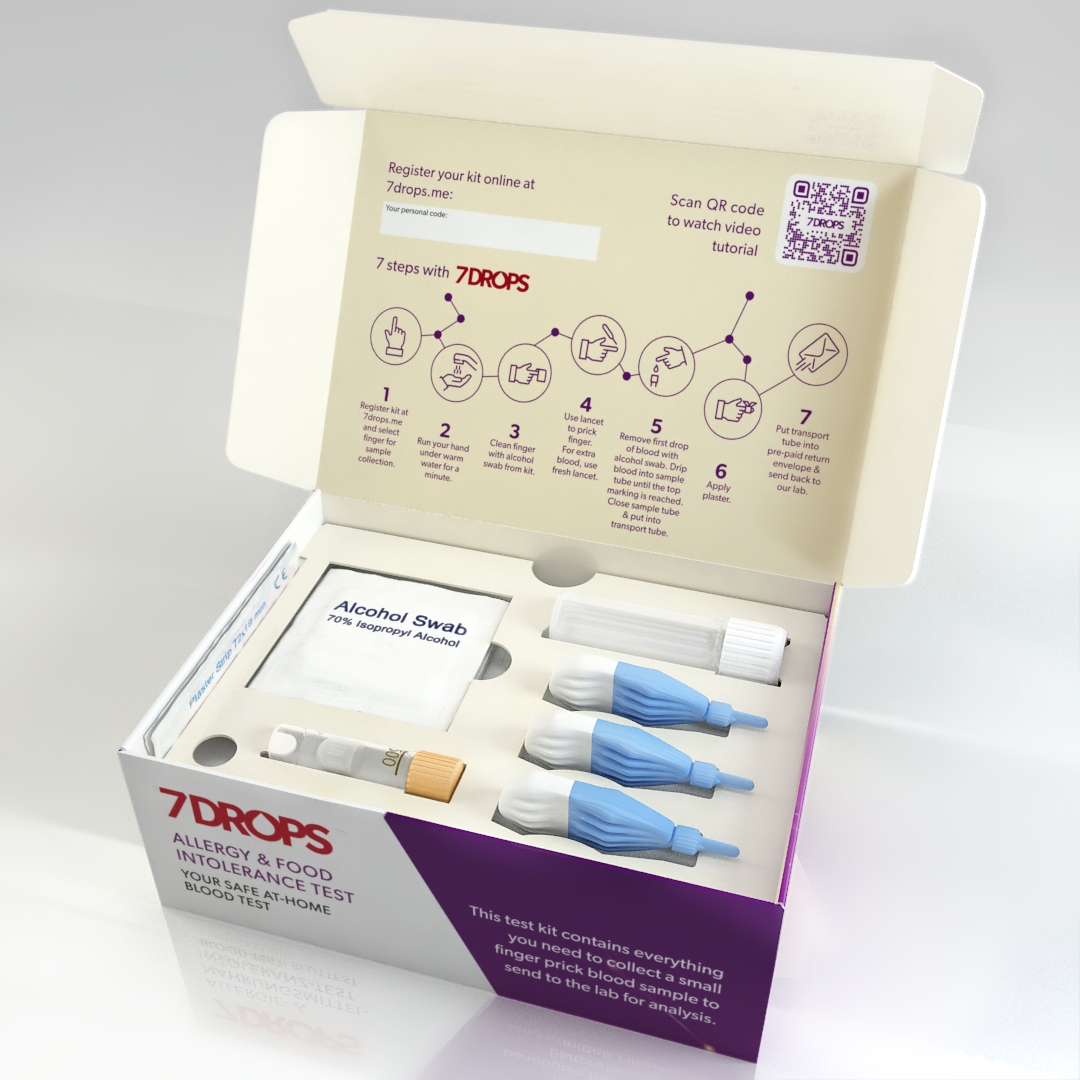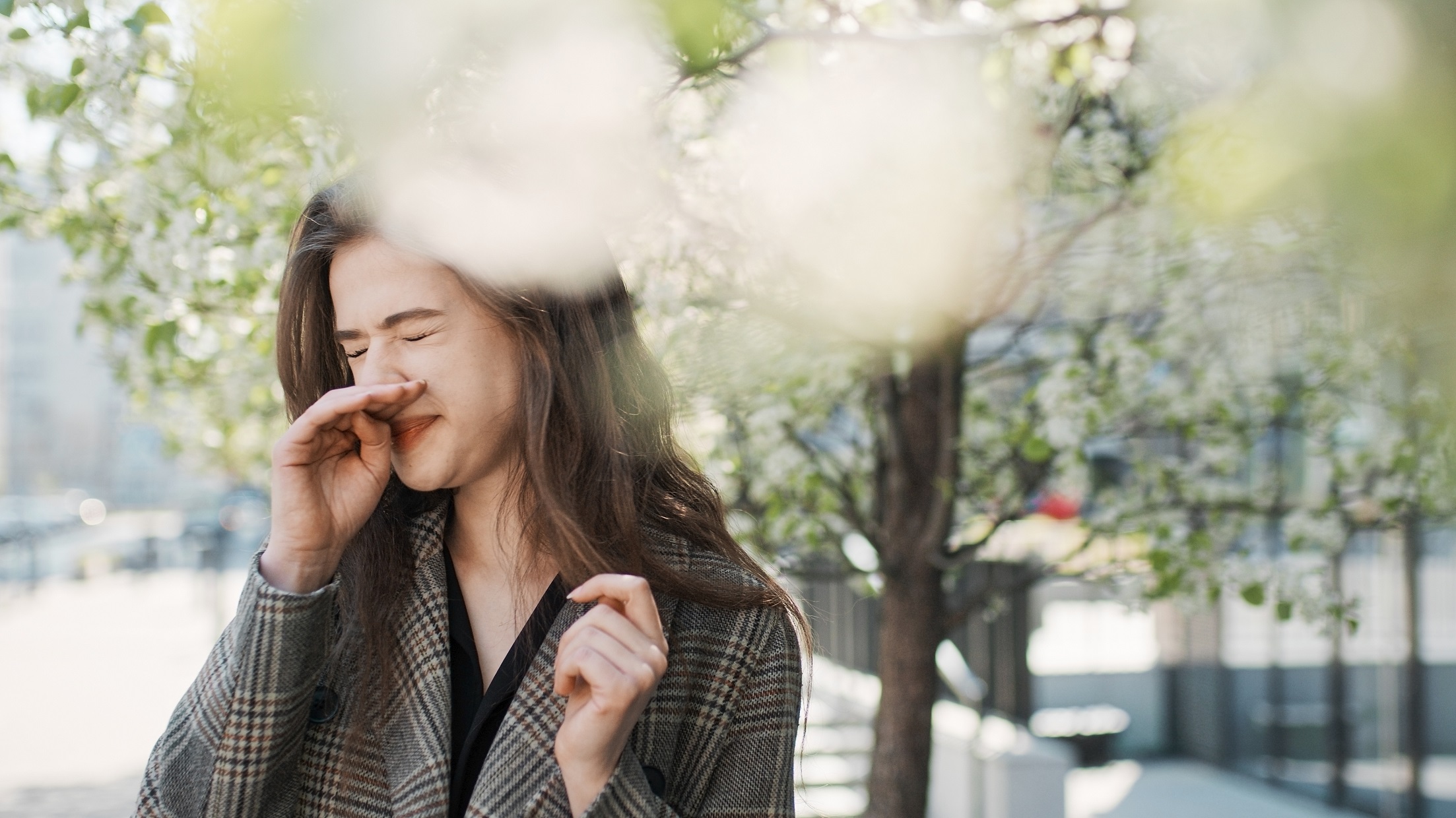While allergic reactions trigger tiredness and fatigue on a chemical level, experiencing allergy symptoms have a similar effect on a physical level. Here’s an example: If your sinuses are congested due to allergies, it can interrupt your sleep or in extreme cases, prevent you from getting any shuteye at all.
Furthermore, some allergy medication like antihistamine tablets can lead to increased tiredness and influence your sleep.
The connection between allergies & feeling tired
To explain what happens in the body when you have an allergic reaction, let’s take pollen allergy as an example. If you’re allergic to Birch tree pollen and you encounter them during a walk outside, certain antibodies in your immune system are activated. These antibodies release chemicals that are supposed to protect you from the allergen (in the case of our example, Birch pollen).
These activated antibodies are called Immunoglobulin E (IgE) and sit on the body’s mast cells. The mast cells are located wherever we get in touch with an allergen – for example the skin, in the airways, and in the intestine. The mast cells store a chemical called histamine, which they release when you encounter Birch pollen.
The release of histamine and IgE antibodies causes itching and swelling of the skin, eyes, and nasal mucosa, sneezing, coughing, and constriction of the airways. All these symptoms have the potential to disturb your sleep, which leads to fatigue during the day – a vicious cycle.
What to do against allergy mediated fatigue?
The right allergy treatment will usually also take care of your fatigue and all other symptoms that bother you. To feel better, the following three steps are essential:
Identify your triggers
An allergy test and consultation with an allergy specialist will give you clarity about what causes your symptoms.
Take medication
Depending on your allergy triggers and symptoms, your allergy specialist will prescribe you medication like antihistamine tablets, nasal sprays, decongestants, or asthma medication. In some cases, immunotherapy can be a successful long-term treatment.
Avoid allergens:
Knowing your allergy triggers means you can work on actively avoiding them. The most frequent triggers are pollen, house dust mites, pet allergens, and mold.
How to avoid allergy triggers
The following steps can help you to avoid some of the most frequent allergy triggers:
- Clean and dust off your living space and workstation regularly.
- Use mite proof bedsheets and wash them weekly at 140F.
- Keep frequently damp rooms (e.g., bathrooms) well-circulated to avoid mold growth.
- Don’t let pets sleep in your bed and clean/brush out their fur regularly.
- Keep windows closed during peak pollen times (early morning hours and at dusk).
When to consult a specialist
When lingering fatigue affects your daily life, it’s time to consult a physician. If you are unsure whether your lingering tiredness or fatigue is caused by an allergy or not, we suggest consulting an allergy specialist and to get tested for allergies. After a proper diagnosis you can implement measures to combat your allergy symptoms as well as your fatigue.





